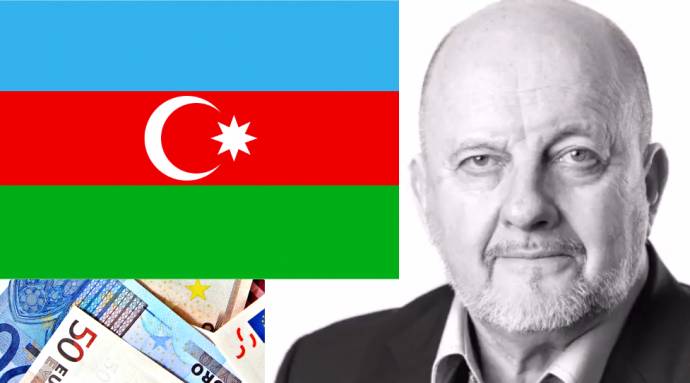Jelinčič has been banned from the CoE after he was caught in the case dubbed "Azerbaijani Laundromat", in which the Azerbaijani government bribed members of the Parliamentary Assembly of the Council of Europe (PACE) to vote against a report critical of the treatment of political prisoners. The report was rejected.
According to an independent investigation, Jelinčič, who was elected to parliament after a seven year hiatus in June, received in July 2012 EUR 25,000 from a British company involved in the scandal.
In June, the CoE banned him and 13 other former members of PACE from the CoE for life, but Jelinčič rejected this for the press on Wednesday.
According to a document he received in April, "I am only listed on page 11 as not having submitted a written statement they had reportedly asked of me". He would not comment on the June document.
He further denied claims that he had failed to respond to questions, noting that he had received two letters with ridiculous and degrading questions. "I responded that I would not answer such impudent and degrading and offensive questions."
Jelinčič said that parliament had been acquainted with the scandal before the June election and that it only got into media after the outgoing Prime Minister Miro Cerar had allegedly threatened Jelinčič.
On the other hand, the scandal has revived calls for MPs to adopt a code of conduct by the Commission for the Prevention of Corruption and Transparency International Slovenia.
According to the anti-graft watchdog, the code would give deputies "guidelines for behaving and make them better aware of integrity".
The adoption of such a document would show the public that they are willing to improve with regards to integrity, said the commission which was also critical of Jelinčič's recent appointment as the vice-chair of the parliamentary Foreign Policy Committee.
TI Slovenia, meanwhile, urged parliamentary Speaker Matej Tonin, who said he would not propose a code to MPs, to take a position on the matter.
"Despite being in a period of putting together coalitions, the fight against corruption and unethical actions must be a priority. Above all for the speaker of the institution, who must defend its decreasing reputation."
Additionally, the NGO rejected Jelinčič's claims about not being banned from CoE, noting that "article 12 in the 29 June CoE document clearly confirms his expulsion from the organisation".
The Specialised State Prosecution has also confirmed for the STA it gave the police guidelines for investigation of potential corrupt acts by two individuals.
Unofficially, one is Jelinčič, while some media floated the name of MEP Ivo Vajgl (ALDE/DeSUS) as the other one. However, Vajgl, who oversaw 2013 election in Azerbaijan, denied being investigated and said that his case had been closed by the European Parliament in 2014.






